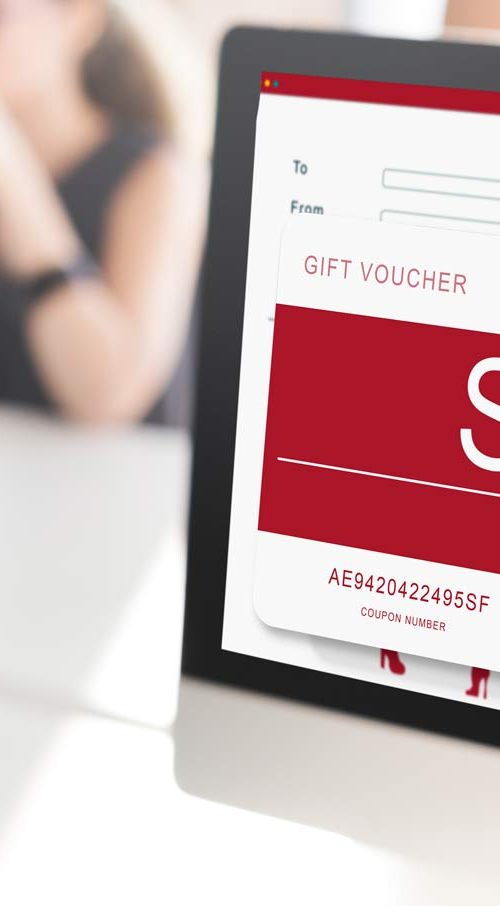Ultimate Business Owner’s Resource for Effective Debt Consolidation Loan Strategies
For business owners facing the arduous task of managing various financial obligations, including credit card debts, overdrafts, and traditional loans, the struggle is real. As these debts accumulate, the financial burden often increases, requiring greater effort and resources to handle multiple payment schedules effectively. Utilizing debt consolidation loans for self-employed individuals can provide a much-needed solution, allowing business owners to combine all their debts into one streamlined loan agreement. This method not only simplifies repayments into a single monthly obligation with one interest rate and one lender but also reduces the administrative hassle, leading to clearer financial visibility and enhanced stability.
Recent statistics indicated that UK businesses could be grappling with between £97 billion and £107 billion in unsustainable debt as of 2021, according to TheCityUK in the Sunday Times. This staggering figure emphasizes the urgent need for effective debt management strategies among business owners, enabling them to handle their financial obligations more sustainably and efficiently.
In-Depth Examination of How Business Debt Consolidation Loans Operate
A business debt consolidation loan is a strategic approach designed to help companies secure new funding specifically aimed at settling existing debts. This financial vehicle consolidates multiple debts into a single, manageable loan, thereby simplifying the repayment landscape. By choosing debt consolidation, businesses can significantly reduce the anxiety of juggling multiple payments and focus their energy on operational growth and effective management of their enterprises.
When considering debt consolidation loans, it is vital to seek out lenders that offer competitive interest rates that are lower than the combined rates of your current debts. This ensures that the consolidation genuinely benefits your financial health and sustains your long-term business viability.
Overcoming the Challenges of Repaying Government-Backed Loans
A substantial portion of the estimated £38 billion in business debt arises from government-backed COVID-19 loan programs. Over 910,000 businesses have utilized these financial programs; however, many encounter significant obstacles when it comes to repaying these loans. This predicament not only presents serious challenges for affected businesses but also hampers broader economic recovery initiatives across the nation.
In light of these challenges, British banks are being called upon to expedite their strategies for comprehensive debt recovery and enhance staff training to better handle debt disputes. Individually, business owners must conduct a thorough evaluation of their options for managing multiple debts effectively to maintain financial stability and operational sustainability.
Assessing the Viability of Business Debt Consolidation for Your Company
In summary, consolidating business debt is not only feasible but often a wise decision.
Operating a business today—especially within an unpredictable economic landscape—presents numerous challenges. For small to medium-sized enterprises, maintaining a healthy cash flow is paramount, particularly for those involved in business-to-business transactions or industries that experience seasonal demand fluctuations.
Unexpected costs can arise, whether from purchasing new equipment or facing sudden price hikes from suppliers. Without adequate cash reserves, businesses might quickly find themselves deep in debt, complicating their financial situation significantly.
In times of financial strain, many businesses turn to loans as a primary solution. However, during economic downturns, the propensity to secure multiple loans can lead to a precarious scenario known as the debt spiral.
The debt spiral occurs when businesses struggle to meet repayments on various financial obligations, resulting in accumulating interest and escalating debt levels. The pressure of managing daily operations is already challenging, and when compounded by the burden of multiple debts, it can become excessively stressful. This is precisely where business debt consolidation loans can offer crucial relief and support.
Thorough Overview of Business Debt Consolidation Techniques
When unexpected economic hardships arise, UK businesses may quickly find themselves accruing significant debt. In such scenarios, a business debt consolidation loan can serve as an effective remedy.
Various formal and informal options exist to assist businesses in effectively tackling their debt challenges.
The first step often involves consulting with a reputable financial expert who can offer valuable insights into customized debt consolidation strategies tailored to meet specific business needs.
One option available is a Company Voluntary Arrangement (CVA), specifically structured for limited companies facing debt issues. This process is akin to an Individual Voluntary Arrangement (IVA) used in personal insolvency cases.
Through a CVA, businesses can negotiate favorable terms with creditors, potentially resulting in some debts being written off and extended repayment timelines. This arrangement provides critical breathing space for businesses to recover and stabilize their financial standing.
While accepting a reduced payoff is not obligatory, it is worth considering, as creditors may prefer this option to ensure they receive more over time rather than risk the chance of liquidation.
An insolvency practitioner oversees the CVA process, facilitating discussions between the business and its creditors while allowing existing management to continue operating the business.
Diverse Strategies for Effective Business Debt Consolidation
Business debt consolidation provides an opportunity to amalgamate various types of business loans, overdrafts, and creditor obligations into a single, unified loan agreement. This approach streamlines cash flow by merging payments into one manageable monthly installment, thereby reducing administrative burdens and significantly improving the efficiency of the repayment process.
Simplifying Business Credit Card Debt with Consolidation Solutions
For businesses struggling with multiple credit card balances, consolidating these debts into a more organized and manageable structure offers a practical solution. A business debt consolidation loan provides an excellent opportunity to secure a more favorable lending option, potentially lowering monthly payments and freeing up vital capital for operational needs.
Enhancing Cash Flow through Business Cash Advance Debt Consolidation
In certain scenarios, businesses may need immediate cash access to maintain smooth operations. Often, funds are tied up in existing loans and overdrafts, hindering access to liquid assets. A business debt consolidation loan can simplify this process by merging various debts into a single payment with a lower monthly obligation, thus increasing liquidity for essential business functions.
Addressing Bad Credit Challenges in Business Debt Consolidation
As businesses expand, they may accumulate various loans and financing options, creating complex repayment structures. This complexity can be intensified by a poor credit score, complicating the ability to secure additional financing. However, a business debt consolidation loan can provide a pathway to simplify debts into one manageable loan with a single monthly payment, ultimately enhancing overall financial clarity.
Small Business Debt Consolidation Loans: A Vital Financial Support
Small businesses are crucial to the economy yet often struggle to remain viable amid minor demand fluctuations or decreased foot traffic. For these enterprises, managing multiple loans without dedicated financial personnel can be particularly daunting. A small business debt consolidation loan combines all outstanding debts into a single loan, streamlining payment management and alleviating financial stress.
Analyzing the Pros and Cons of Business Debt Consolidation
Business consolidation loans come with a unique set of advantages and disadvantages; however, many challenges associated with them can be effectively addressed and mitigated.
Benefits of Business Debt Consolidation Loans
Strategic Savings Through Debt Refinancing Options
By selecting a refinancing loan with a larger principal and extended repayment term, your business can secure a greater overall amount while maintaining similar monthly payments. If you qualify for a lower-interest refinancing loan compared to your existing debts, you will incur less interest over time, ultimately saving your business money. Paying off a mix of current loans or replacing an older loan with a new, lower-interest option can also facilitate improved cash flow each month.
Ensuring Continuous Operations Amid Financial Difficulties
Successful debt consolidation can bolster cash flow and support ongoing business operations while ensuring profitability. By consolidating debts with a single lender, businesses can redirect funds that would typically go towards high-interest payments, allowing for more strategic investments in operations and growth initiatives.
Simplifying Payment Management for Busy Business Owners
For business owners who are focused on their operations, managing multiple repayments can be overwhelming. A consolidation loan shifts the focus to a single monthly payment, significantly reducing administrative burdens and allowing owners to concentrate fully on running their businesses effectively and efficiently.
Boosting Cash Flow through Effective Debt Management
With business debt consolidation loans, you are likely to spend less on interest monthly, enabling you to retain more cash for essential purchases and investments that drive growth and sustainability.
Enhancing Your Credit Score through Responsible Financial Management
By effectively managing your financial obligations through a single monthly loan payment, you can build a stronger repayment history. This positive track record enhances your appeal to lenders and suppliers, increasing your chances of acquiring future financing and credit opportunities.
Potential Drawbacks of Business Debt Consolidation
Long-Term Interest Rate Considerations for Debt Consolidation
When consolidating business debt, payments are calculated based on the initial amount owed, which includes both principal and interest. Even if you secure a lower interest rate with a business debt consolidation loan, you might end up paying more in interest over the loan’s duration due to extended repayment periods, underscoring the necessity of diligent financial planning.
Recognizing the Temporary Nature of Debt Solutions
While consolidating debt can alleviate monthly payment pressures, it is crucial to address the underlying financial issues within your business. A long-term strategy may be essential to achieving lasting financial stability and sustainability.
Exploring the Interrelation of Personal and Business Debt: Identifying Opportunities
If you are a freelancer or self-employed individual operating outside a limited company structure, your debts are classified as personal, allowing for consolidation. However, if your business is structured as a limited company, those debts are legally distinct from your personal debts. Consulting with a financial advisor can provide valuable insights into your situation and help identify viable options for effective debt management.
Consider the case of a plumber working as a sole trader who accepts a significant project that spans over a month, with payment deferred until 60 days after completion.
This project may prevent the plumber from taking on additional jobs, resulting in a cash flow challenge. During this period, essential supplies for the job are purchased on credit, and unexpected vehicle repairs arise, further straining finances.
Consequently, the plumber finds themselves managing debts from both the garage and the builder’s merchant. This situation illustrates the potential intermingling of personal and business debts, highlighting the importance of self-employed debt consolidation loans to mitigate financial distress.
Understanding the Mechanism of Self-Employed Debt Consolidation Loans
For individuals facing a blend of personal and business debts, a self-employed debt consolidation loan can provide significant relief. This type of loan enables you to pay off creditors and consolidate repayments into a single monthly obligation at a lower interest rate than the total of your previous debts. This method can help restore financial equilibrium, allowing you to focus on income-generating activities instead of administrative tasks.
When applying for debt consolidation loans, ensure that your monthly payment is lower than what you currently pay to your existing creditors; otherwise, the consolidation may not yield the intended benefits.
Strategic Approaches for Successful Business Debt Consolidation
To effectively consolidate business debt, whether it arises from credit cards, overdrafts, or loans, businesses should pursue a dedicated business consolidation loan. This loan allows for the consolidation of all outstanding debts into a single manageable loan, simplifying repayment into a solitary monthly payment with one interest rate and one lender, ultimately improving financial clarity and reducing stress.
Top-Rated Business Debt Consolidation Companies to Consider
Modern business debt consolidation companies differ markedly from traditional corporate banks. While some banks do offer consolidation loans, there are also specialized lenders catering to various business types, including micro-businesses and SMEs. These lenders often emphasize ethical lending practices and customize loans to accommodate specific business situations.
Thorough Assessment of Business Debt Consolidation Loan Rates
When choosing a business debt consolidation loan, it is crucial to compare various options since interest rates can vary widely. Rates may range from just over 5% to as high as 36%. By shopping around, you can find a loan that best aligns with your financial needs; even if some options have higher rates, they may still offer the essential financial support you require quickly.
Understanding the Impact of Business Debt Consolidation on Your Organization
In cases where your business debt results from isolated incidents, a CVA may represent the most effective pathway to debt relief.
Company directors can avert liquidation and bankruptcy by adhering to the terms outlined in the business debt consolidation arrangement.
Through this strategy, a business can aim for debt freedom within five years. During the CVA period, interest may be suspended, and additional charges could be halted, facilitating repayment. In some scenarios, as much as 75% of a business’s unsecured debt can be eliminated through a CVA.
A Creditor Voluntary Liquidation (CVL) is an alternative approach to business debt consolidation that numerous financial counseling agencies may recommend. In this process, parties legally entitled to the company’s assets can identify and distribute these assets during the liquidation procedure.
During liquidation, the company is dissolved, and the CVL represents a resolution agreed upon by the shareholders. This phase is critical; at this point, the company may be too far gone to consider a debt consolidation loan, indicating insolvency and an inability to repay debts fully.
The economic downturn has unfortunately driven many UK businesses into CVL situations—an outcome that is unfavorable for any shareholder or director. A liquidator is appointed to oversee the CVL business debt consolidation process.
The liquidator will convene a meeting with creditors to scrutinize the insolvency claims made by the directors, with creditors formally appointing the liquidator. The liquidator’s responsibilities in the context of business debt consolidation include converting assets into cash, investigating the conduct of company directors, assessing the company’s debts, and facilitating payments to creditors.
Discover Related Resources: Popular Topics Among Our Readers
 Buy Now Pay Later Schemes Currently Under Scrutiny
Buy Now Pay Later Schemes Currently Under Scrutiny
Buy Now Pay Later Schemes Currently Under Scrutiny
References:
<blockquote class="wp-embedded-content" data




This is a timely and relevant topic for many business owners navigating the complexities of debt management. As I’ve personally experienced the pressures of juggling multiple financial obligations, I’m particularly drawn to the advantages provided by debt consolidation loans. Streamlining repayments does not just alleviate the administrative burden; it also allows for better cash flow management and a clearer focus on growth strategies.
I can relate to that experience. Managing multiple financial obligations can feel like a juggling act—one that can easily get out of hand. The advantages of debt consolidation loans really resonate with many business owners, especially when it comes to simplifying the repayment process. It’s like clearing away the clutter so you can think straight and make more intentional decisions.
It’s interesting to hear about your personal experiences with juggling multiple financial obligations. Managing debt can feel like a full-time job in itself, and it’s great that you’re finding value in debt consolidation loans. Streamlining repayment processes not only simplifies the daily grind but also sheds light on a usually murky financial picture.
It’s true, managing multiple financial obligations can really take over your life if you let it. When you’re juggling various payments, it often feels like you’re constantly in survival mode. I found that debt consolidation loans were a real turning point for me, not just for the numbers on paper but for my mental space, too.
Managing debt really can feel overwhelming at times, and I appreciate you sharing your thoughts on that. When I first started looking into ways to handle my financial commitments better, I was surprised by how much clarity consolidation brought. By combining different loans into one, I noticed I could focus on creating a realistic budget instead of feeling like I was juggling a dozen balls in the air. It’s incredible how that shift in perspective made a big difference.